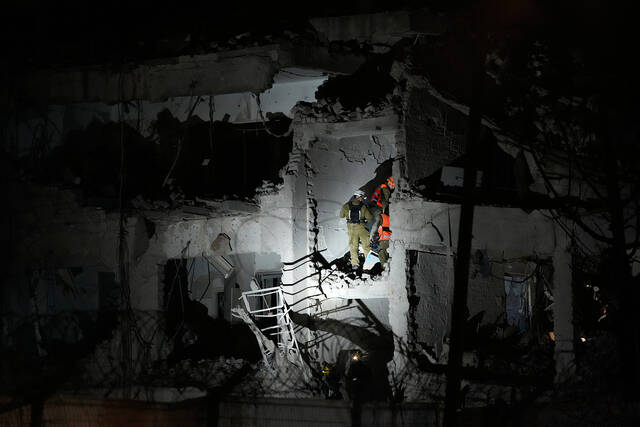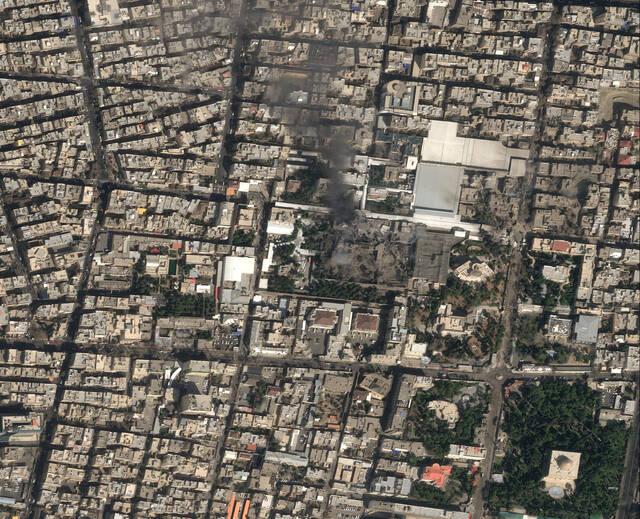Pittsburgh Regional Transit said Tuesday it has secured the final piece of funding needed to complete a nearly $300 million project intended to shorten travel times and improve bus service between Oakland and Downtown.
Southwestern Pennsylvania’s largest public transit agency said it has received $150 million from the Federal Transit Authority, more than half of the money needed for the estimated $291 million project.
Pittsburgh Regional Transit said construction could start this fall.
“By increasing our reliability and efficiency between Downtown, Oakland and Uptown, we will improve transportation not only for those who ride the bus, but also improve safety and the overall experience for pedestrians and cyclists,” CEO Katharine Kelleman said during an event Tuesday at the David L. Lawrence Convention Center in Downtown Pittsburgh.
She said the project will result in the creation of service known as the University Line and use buses marked “PRTX” to signify they are for express service on dedicated rights-of-way separate from city traffic.
Pittsburgh’s Bus Rapid Transit has the check, and all of its $291 million allocated. Pittsburgh Regional Transit announced the Downtown to Oakland BRT, renamed University Line, will start 1st phase of construction this fall. The FTA has committed $150 million to project. Story tk pic.twitter.com/yekjBEmQbr
— Ryan Deto (@RyanDeto) June 13, 2023
The University Line will run on bus-only lanes between Downtown and Oakland, mostly running Fifth and Forbes avenues. The buses will go through Uptown.
The buses will rejoin city traffic beyond Oakland, with some going on to Highland Park, others continuing to Squirrel Hill and some heading to the Mon Valley.
The project will bring 23 new stations with real-time tracking displays, bicycle lanes, intersection improvements and accessible ramps, according to Pittsburgh Regional Transit.
Pittsburgh Regional Transit’s board in March approved a $28 million contract with Independence Excavating Inc. for the first phase of construction in Downtown starting this fall, agency spokesman Adam Brandolph said.
Veronica Vanderpool, a deputy administrator with the Federal Transit Authority, said Pittsburgh has been a pioneer in bus-rapid transit projects, citing the region’s busways as the first of their kind when they were created in the 1970s.
She said projects creating bus-only transit lanes are some of the most efficient public transit projects in the country.
Vanderpool said the University Line is one of the federal government’s first big public transit investments since the pandemic. She acknowledged that many public transit agencies have struggled to regain riders lost during the pandemic.
“This is a big deal right now,” she said of the federal investment. “This industry and this sector is facing an existential moment. This is not a small milestone.”
Allegheny County Executive Rich Fitzgerald said he has been involved in the project since it was first pitched in 2009. He said the project will improve the connection between the state’s second and third largest job centers, Downtown and Oakland.
The transit corridor serves an area with more than 232,000 jobs, as well as multiple universities, PPG Paints Arena and several large hospitals, Vanderpool said.
The corridor already serves 30,000 riders a day, according to Pittsburgh Regional Transit.
Fitzgerald said the infrastructure improvements from the transit project could also spur more development in Uptown.
“Without this $150 million from the federal government, we wouldn’t be able to move forward on this project,” he said. “It will be transformational when it comes to our environment, safety, reliability and economic growth.”
Brandolph said no local tax increases are associated with the project. In addition to the $150 million grant from the Federal Transit Authority, the federal government also is providing $19.3 million in covid-19 stimulus funding and $9.3 million from the Congestion Mitigation Air Quality Program.
Local governments are providing the remainder of the funding, with Pittsburgh Regional Transit contributing $73.6 million, Allegheny County allocating $30 million and the city of Pittsburgh providing $8.8 million.








